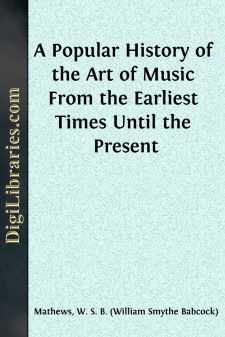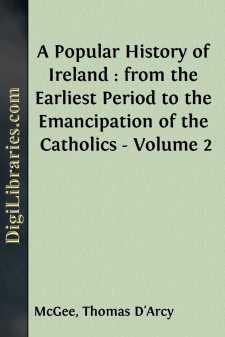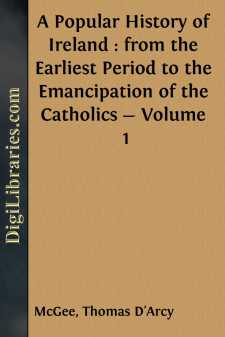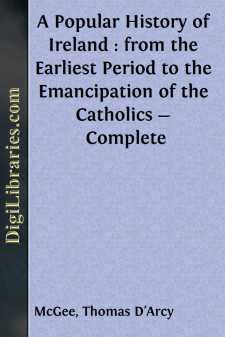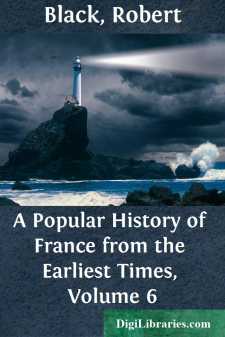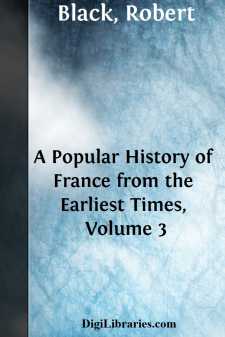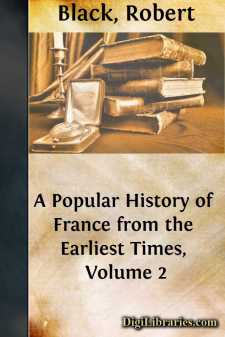Categories
- Antiques & Collectibles 13
- Architecture 36
- Art 48
- Bibles 22
- Biography & Autobiography 813
- Body, Mind & Spirit 142
- Business & Economics 28
- Children's Books 15
- Children's Fiction 12
- Computers 4
- Cooking 94
- Crafts & Hobbies 4
- Drama 346
- Education 46
- Family & Relationships 57
- Fiction 11829
- Games 19
- Gardening 17
- Health & Fitness 34
- History 1377
- House & Home 1
- Humor 147
- Juvenile Fiction 1873
- Juvenile Nonfiction 202
- Language Arts & Disciplines 88
- Law 16
- Literary Collections 686
- Literary Criticism 179
- Mathematics 13
- Medical 41
- Music 40
- Nature 179
- Non-Classifiable 1768
- Performing Arts 7
- Periodicals 1453
- Philosophy 64
- Photography 2
- Poetry 896
- Political Science 203
- Psychology 42
- Reference 154
- Religion 513
- Science 126
- Self-Help 84
- Social Science 81
- Sports & Recreation 34
- Study Aids 3
- Technology & Engineering 59
- Transportation 23
- Travel 463
- True Crime 29
Sort by:
by:
Angela Brazil
The End of the Holidays "Ingred! Ingred, old girl! I say, Ingred! Wherever have you taken yourself off to?" shouted a boyish voice, as its owner, jumping an obstructing gooseberry bush, tore around the corner of the house from the kitchen garden on to the strip of rough lawn that faced the windows. "Hullo! Cuckoo! Coo-ee! In-gred!" "I'm here all the time, so you needn't...
more...
INTRODUCTION. I. HE name "music" contains two ideas, both of them important in our modern use of the term: The general meaning is that of "a pleasing modulation of sounds." In this sense the term is used constantly by poets, novelists and even in conversation—as when we speak of the "music of the forest," the "music of the brook" or the "music of nature." There...
more...
Sir Henry Sidney, in writing to his court, had always reported John O'Neil as "the only strong man in Ireland." Before his rout at Lough Swilly, he could commonly call into the field 4,000 foot and 1,000 horse; and his two years' revolt cost Elizabeth, in money, about 150,000 pounds sterling "over and above the cess laid on the country"—besides "3,500 of her...
more...
Ireland, lifting herself from the dust, drying her tears, and proudly demanding her legitimate place among the nations of the earth, is a spectacle to cause immense progress in political philosophy. Behold a nation whose fame had spread over all the earth ere the flag of England had come into existence. For 500 years her life has been apparently extinguished. The fiercest whirlwind of oppression that...
more...
Ireland, lifting herself from the dust, drying her tears, and proudly demanding her legitimate place among the nations of the earth, is a spectacle to cause immense progress in political philosophy. Behold a nation whose fame had spread over all the earth ere the flag of England had come into existence. For 500 years her life has been apparently extinguished. The fiercest whirlwind of oppression that...
more...
by:
Robert Black
CHAPTER XLIX. LOUIS XIV. AND HIS COURT. Louis XIV. reigned everywhere, over his people, over his age, often over Europe; but nowhere did he reign so completely as over his court. Never were the wishes, the defects, and the vices of a man so completely a law to other men as at the court of Louis XIV. during the whole period of his long life. When near to him, in the palace of Versailles, men lived, and...
more...
by:
Robert Black
CHAPTER XXXV. HENRY IV., PROTESTANT KING. (1589-1593.) On the 2d of August, 1589, in the morning, upon his arrival in his quarters at Meudon, Henry of Navarre was saluted by the Protestants King of France. They were about five thousand in an army of forty thousand men. When, at ten o'clock, he entered the camp of the Catholics at St. Cloud, three of their principal leaders, Marshal d'Aumont,...
more...
by:
Robert Black
CHAPTER XXVIII. FRANCIS I. AND CHARLES V. The closer the study and the wider the contemplation a Frenchman bestows upon his country's history, the deeper will be his feelings of patriotic pride, dashed with a tinge of sadness. France, in respect of her national unity, is the most ancient amongst the states of Christian Europe. During her long existence she has passed through very different...
more...
by:
Robert Black
CHAPTER XXIII.——THE HUNDRED YEARS' WAR—CHARLES VI. AND THE DUKES OF BURGUNDY. Sully, in his Memoirs, characterizes the reign of Charles VI. as "that reign so pregnant of sinister events, the grave of good laws and good morals in France." There is no exaggeration in these words; the sixteenth century with its St. Bartholomew and The League, the eighteenth with its reign of terror, and...
more...
by:
Robert Black
CHAPTER XVII. THE CRUSADES, THEIR DECLINE AND END. In the month of August, 1099, the Crusade, to judge by appearances, had attained its object. Jerusalem was in the hands of the Christians, and they had set up in it a king, the most pious and most disinterested of the crusaders. Close to this ancient kingdom were growing up likewise, in the two chief cities of Syria and Mesopotamia, Antioch and Edessa,...
more...



